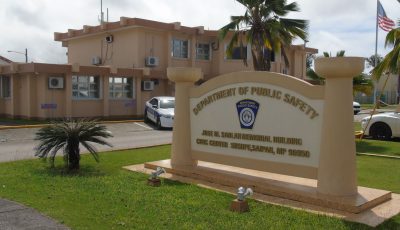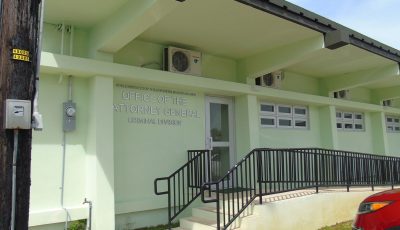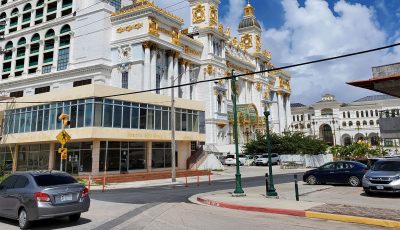OAG wants convicted murderer’s parole revoked
The Office of the Attorney General has urged the Board of Parole to hear the case again of convicted murderer Shawn Appleby and revoke his parole.
Chief prosecutor John Bradley said yesterday that the COVID-19 pandemic is no excuse for criminal behavior or lenience in cases like this.
“The community deserves to be protected, and the Office of the Attorney General’s Criminal Division will work hard to make sure victims are heard,” Bradley said.
A preliminary hearing was set yesterday afternoon before a parole officer at the Department of Corrections in order to determine whether there is probable cause to believe that Appleby violated the conditions of his parole. The hearing was also intended to determine whether the matter should be referred for consideration by the Parole Board.
Appleby is currently in DOC’s custody.
Bradley told Saipan Tribune yesterday that the Parole Board found probable cause against Appleby at the hearing and that a hearing date for revocation is next.
Bradley has yet to receive the document listing the allegations of violations of parole.
In September 2019, despite the OAG’s and the Parole Office’s opposition to grant Appleby parole, the Parole Board voted to release him.
In the government’s memorandum yesterday addressed to Board of Parole director Ramon B. Camacho, Bradley expressed his opposition to the grant of parole for Appleby.
Appleby was sentenced to 42 years in prison for the charges of first-degree murder and escape.
Bradley said Appleby is not suitable for parole. He said Appleby has served less than half of his sentence and has slightly over 24 years remaining. He said the inmate was previously granted parole in February 2011, only for it to be revoked in December 2012 for violating the conditions of his parole.
Bradley said Appleby admitted in his interview for the investigation report that he drinks alcohol and uses crystal meth, which he said could potentially result in future criminal acts.
Bradley said upon review of the institutional conduct report from the Department of Corrections, Appleby was sanctioned in 2012 and 2014, and was placed in isolation for violations such as disrespect to staff and possession of tobacco.
“Such actions during this incarceration indicate that the inmate fails to comply, and adhere to instructions, rules, orders, and, most importantly, the law,” the chief prosecutor said.
He said Appleby’s criminal history indicates that he has been charged with other crimes that include conspiracy, assault and battery, assault with a dangerous weapon, robbery, theft, riot, and numerous counts for burglary.
Bradley added that the recommendations of the Parole Office indicate that Appleby’s release plans are not as conducive for a successful parole period.
Bradley said the OAG is in agreement with the Parole Office. He said clearly Appleby continues to pose a significant threat to the safety and welfare of the Commonwealth.
In the interest of justice and the welfare of the Commonwealth, Bradley said they oppose a grant of parole for Appleby and ask the Board of Parole to deny his application for parole.
Appleby is serving a 40-year prison for killing Byung Ok Suh in November 1996 after robbing the victim’s store, Chalan Market, in San Antonio. The victim was shot.
Appleby bolted from the Department of Corrections twice, in 1999 and 2007, adding two more years to his 40-year prison term.



























